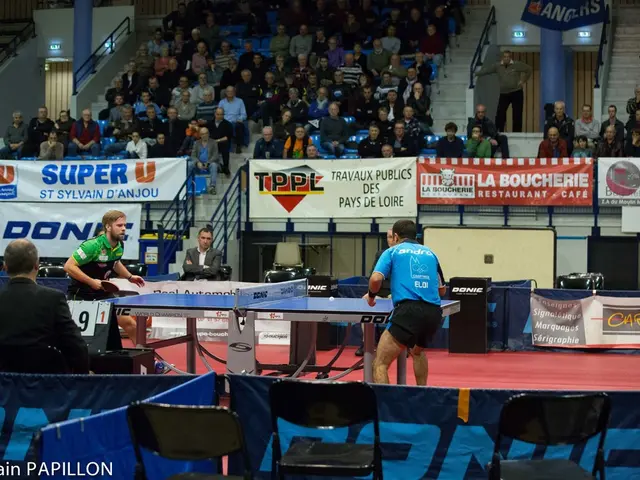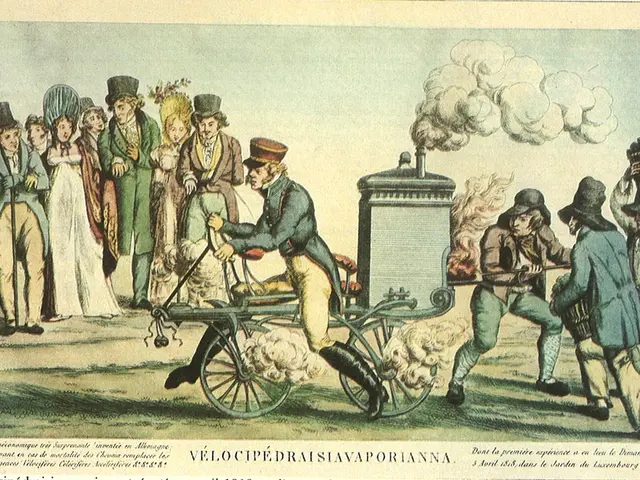A Fresh Perspective on Bangladesh's Political Landscape
Islamist heavyweights in Bangladesh vow to implement Islamic law amid election preparations
Bangladesh's political arena is brimming with action as the country hurtles towards the next parliamentary elections. Muhammad Mamunul Haque, joint secretary of Hefazat-e-Islam—an influential alliance of Islamic schools—is optimistic about their chances, promising a massive rally in the capital, Dhaka, on Saturday.
This event is set to be the coalition's biggest display of strength in years. Fueled by religious passion, activism is on the rise in Bangladesh. Haque, at 52, articulates the group's ambitions of enforcing sharia, Islamic law, and believes their expansive network of tens of thousands of seminaries (claimed to have roughly half a million members) will work in their favor, provided the vote remains "free and fair."
Hefazat-e-Islam is an amalgamation of diverse parties and Muslim organizations. Established fifteen years ago, they have been a key player in political maneuverings, courted by numerous parties. An election date hasn't been announced yet, but caretaker leader Muhammad Yunus, a Nobel Peace Prize laureate, has assured that polls will occur no later than June 2026.
Post-Revolution Strength
Bangladesh last held elections in 2024, with Sheikh Hasina securing a fourth term as prime minister despite the absence of credible opposition parties. Her opponents chose to boycott the election following a crackdown. Hasina dealt harshly with Islamist movements during her 15-year rule, shielding thousands and even incarcerating Haque himself in 2021 for three years.
Charges were brought against Haque, with Islamists attempting to spearhead protests against a visit from Hasina's key ally, Prime Minister Narendra Modi of India. Hasina fled to India in August as crowds stormed her palace, and she remains in self-imposed exile, creating resentment among those who demand she face trial for alleged "mass murder."
Islamist groups have gained ground while Hasina was in power, emboldened by her absence, and have devoted themselves to imposing their ideals on the population. This has incited fear in smaller groups, such as Muslim Sufi worshippers and the Hindu minority, who make up less than 10% of the population.
Culture Wars and Intolerance
Islamist groups have been increasingly intolerant, targeting a variety of cultural activities deemed "anti-Islamic." These include musical events, theatre festivals, women's football matches, and kite-flying celebrations. Mobs have wrecked havoc on Sufi shrines, and supporters of Haque's Khilafat-E-Majlis group even vandalized a public library last month, seizing hundreds of books before returning them. Notable works taken included those by Nobel laureate Rabindranath Tagore and Bangladesh's national poet, Kazi Nazrul Islam.
Golam Rabbani, a leader of Khilafat-E-Majlish's youth wing rationalized the book seizure as an effort to eradicate atheistic literature. Haque, unwavering in his convictions, insisted that his followers aim to implement sharia law, ensuring fairness for all while adhering to Islamic principles. This includes capital punishment for blasphemy against Islam, a position Haque leaves no room for debate.
The Path Forward
As Bangladesh moves forward towards elections, the political atmosphere is filled with uncertainty and tension. Various key parties, including the powerful Bangladesh Nationalist Party (BNP) and the National Citizens Party (NCP), are aligning themselves with Hefazat-e-Islam, seeking their support. Other major political players, like the largest single Islamist political party, Jamaat-e-Islami, are also participating in the political favor-trading.
Haque has made it clear that Hefazat-e-Islam opposes the government's women's commission and its push for ending discriminatory provisions, such as equal inheritance rights for men and women. Haque believes the commission is a direct affront to Islamic family traditions and appears determined to thwart any attempts at creating a Western-style society.
Muslim-majority Bangladesh's constitution, based on the principles of nationalism, socialism, democracy, and secularism, is currently under threat from groups like Hefazat-e-Islam, whose vision centers around the enforcement of Islamic law. This raises questions about the future of Bangladesh's society, democracy, and overall direction.
© 2025 AFP
- In 2025, Hefazat-e-Islam, an Islamic alliance in Bangladesh, plans to hold a massive rally in Dhaka to showcase their strength and ambitions for enforcing sharia law.
- Despite being released from prison in 2024, Muhammad Mamunul Haque, the joint secretary of Hefazat-e-Islam, remains focused on his group's goals, professing their commitment to upholding Islamic values in politics and society.
- As Bangladesh approaches the next parliamentary elections, Islamic groups like Hefazat-e-Islam have gained traction and have vowed to challenge the political landscape, particularly in matters concerning women's rights and inheritance laws.
- Amidst the growing influences of Islamic groups in Bangladesh, the future of fundamental human rights, such as women's rights and religious freedom, becomes uncertain, raising questions about the nation's commitment to democratic and secular values.










